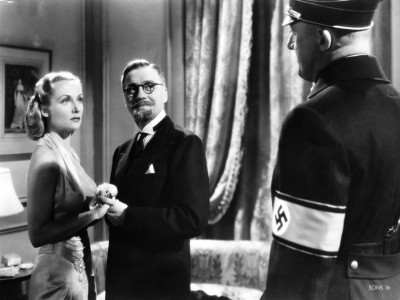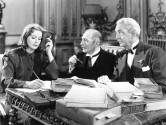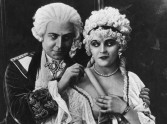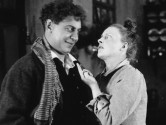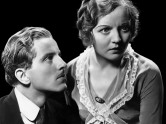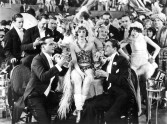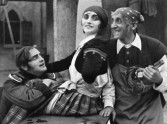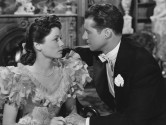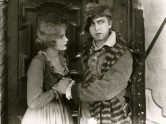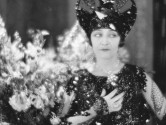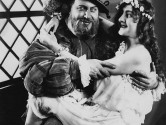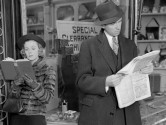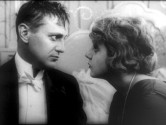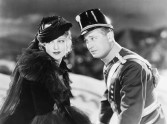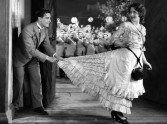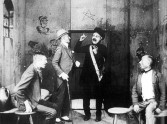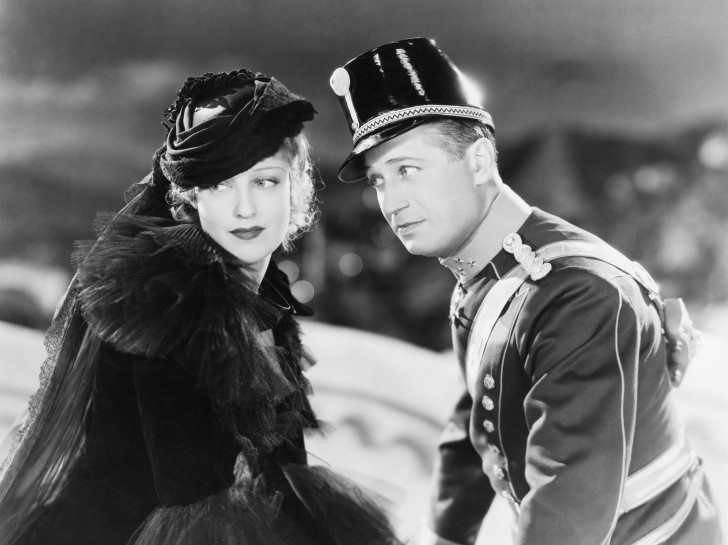
The Merry Widow
With Maurice Chevalier, Jeanette MacDonald, George Barbier.
US, 1934, 35mm, black & white, 99 min.
Print source: Warner Bros.
The new film version of Franz Lehár’s operetta reunited Lubitsch one last time with Maurice Chevalier and Jeanette MacDonald for what would also be his final musical. The director was somewhat influenced by the grand scale of Busby Berkeley, though Lubitsch uses his dance sequences—as he does the sharp tonal changes throughout the film—to express characters’ otherwise uncommunicated feelings. Squeezed in right before the Production Code went into full effect, not everything in the film is so veiled. The carefree promiscuity of playboy Danilo provides a scandalous wealth of blatant transgression until it is challenged by the beautiful widow Sonia, who happens to be the wealthiest woman in Marshovia. With the fate of the small, nearly bankrupt country suddenly dependent on their unlikely union, the private and the public become entirely entangled, until their relationship is virtually on trial. Lubitsch’s comic rendering may be worlds away from von Stroheim’s darker, more eccentric take, but the startling symbolism within the “happy” ending remains outrageously ominous. Happily-ever-after has been sacrificed for a greater good, as well as the increasingly conservative morality of Hollywood.
